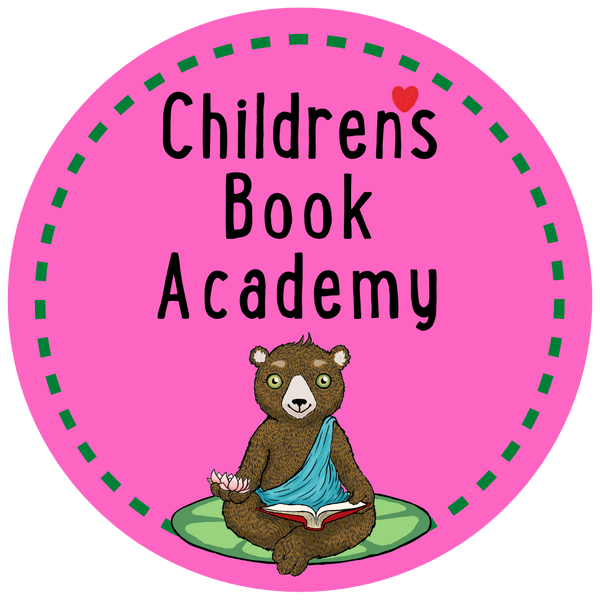|
Research proves that children who hear, listen to, and learn nursery rhymes at a very young age develop higher level literacy skills more rapidly than children who don't.
Anna Geiger over at The Measured Mom wrote a fantastic blog post called Why Your Child Needs Nursery Rhymes. Please check out her 10 reasons why today's kids still need nursery rhymes. |
As you can see from Anna's post there are many benefits to reading nursery rhymes to your child. I want to elaborate on one particular benefit which is number 6 on Anna's list: Listening to Nursery Rhymes builds vocabulary.
In a previous post, I discussed the different tiers of vocabulary.
Three Tiers of Vocabulary
Educator and author of Bringing Words to Life, Isabel Beck, has categorized all words into three tiers.
Tier I
-Most basic words
-Rarely require instruction in school
-Examples: clock, baby, happy
Tier II
-Words that are high frequency for mature language users and are found across a variety of domains
-Not so common in everyday language
-Instruction adds productivity to an individual’s ability
-Examples: coincidence, absurd, industrious
Tier III
-Words whose frequency of use is quite low and is often limited to specific domains
-Best learned when needed in a content area
-Examples: isotope, lathe, peninsula
Therefore, when teaching vocabulary, it makes the most sense to teach Tier II words.
I want to illustrate just how many tier II words your child can easily hear and learn just by repeating and reading nursery rhymes.
Below are common nursery rhymes in which I've highlighted the tier II vocabulary.
Hickory Dickory Dock,
the mouse ran up the clock.
The clock struck one,
the mouse ran down,
Hickory dickory dock!
Jack and Jill went up a hill
to fetch a pail of water.
Jack fell down and broke his crown
and Jill came tumbling after.
Little Miss Muffet,
sat on a tuffet,
eating her curds and whey.
Along came a spider,
who sat down beside her
and frightened Miss Muffet away.
Pussycat, pussycat, where have you been?
I've been to London to visit the Queen.
Pussycat, pussy, what did you do there?
I frightened a little mouse under the chair.
Twinkle, twinkle little star,
how I wonder what you are.
Up above the world so high.
Like a Diamond in the sky.
Twinkle twinkle little star,
how I wonder what you are.
Jack be nimble,
Jack be quick,
Jack jump over the candlestick.
As you can see, there are tons of vocabulary words that your children can be exposed to. You might be wondering why I only highlighted some words but not others. It's important to keep in mind that tier II words are ones that are not specific to a content area and are seen frequently in books and literature. There are different levels of tier II words as well ranging from very frequent to less frequent. I'm sure many can be argued that some may be specific to a content area or some may be too simplistic. For example, the word "quick" may be considered a tier I word. However, I imagine that parents might use the word "fast" before they say "quick." When using vocabulary with your child, start using synonyms when you are describing something. "Wow you ran very fast. You are very quick!"
You can also see how a lot of the language used above may spark conversations with your child beyond the tier II vocabulary.
For example:
Where is London?
What are curds and whey?
Also Twinkle Twinkle little star contains a simile: like a diamond in the sky.
The other thing to keep in mind, is that if your child has background knowledge of nursery rhymes (and fairy tales) it will help them tremendously when they get into school. Often nursery rhymes and fairy tales will be referred to in other stories or on tests. Or they may have to compare and contrast an original with a twisted or fractured version. And not knowing the original versions puts kids at a huge disadvantage.
Nursery rhymes may seem small and simplistic, but the benefits they offer to your child's education are endless.
In a previous post, I discussed the different tiers of vocabulary.
Three Tiers of Vocabulary
Educator and author of Bringing Words to Life, Isabel Beck, has categorized all words into three tiers.
Tier I
-Most basic words
-Rarely require instruction in school
-Examples: clock, baby, happy
Tier II
-Words that are high frequency for mature language users and are found across a variety of domains
-Not so common in everyday language
-Instruction adds productivity to an individual’s ability
-Examples: coincidence, absurd, industrious
Tier III
-Words whose frequency of use is quite low and is often limited to specific domains
-Best learned when needed in a content area
-Examples: isotope, lathe, peninsula
Therefore, when teaching vocabulary, it makes the most sense to teach Tier II words.
I want to illustrate just how many tier II words your child can easily hear and learn just by repeating and reading nursery rhymes.
Below are common nursery rhymes in which I've highlighted the tier II vocabulary.
Hickory Dickory Dock,
the mouse ran up the clock.
The clock struck one,
the mouse ran down,
Hickory dickory dock!
Jack and Jill went up a hill
to fetch a pail of water.
Jack fell down and broke his crown
and Jill came tumbling after.
Little Miss Muffet,
sat on a tuffet,
eating her curds and whey.
Along came a spider,
who sat down beside her
and frightened Miss Muffet away.
Pussycat, pussycat, where have you been?
I've been to London to visit the Queen.
Pussycat, pussy, what did you do there?
I frightened a little mouse under the chair.
Twinkle, twinkle little star,
how I wonder what you are.
Up above the world so high.
Like a Diamond in the sky.
Twinkle twinkle little star,
how I wonder what you are.
Jack be nimble,
Jack be quick,
Jack jump over the candlestick.
As you can see, there are tons of vocabulary words that your children can be exposed to. You might be wondering why I only highlighted some words but not others. It's important to keep in mind that tier II words are ones that are not specific to a content area and are seen frequently in books and literature. There are different levels of tier II words as well ranging from very frequent to less frequent. I'm sure many can be argued that some may be specific to a content area or some may be too simplistic. For example, the word "quick" may be considered a tier I word. However, I imagine that parents might use the word "fast" before they say "quick." When using vocabulary with your child, start using synonyms when you are describing something. "Wow you ran very fast. You are very quick!"
You can also see how a lot of the language used above may spark conversations with your child beyond the tier II vocabulary.
For example:
Where is London?
What are curds and whey?
Also Twinkle Twinkle little star contains a simile: like a diamond in the sky.
The other thing to keep in mind, is that if your child has background knowledge of nursery rhymes (and fairy tales) it will help them tremendously when they get into school. Often nursery rhymes and fairy tales will be referred to in other stories or on tests. Or they may have to compare and contrast an original with a twisted or fractured version. And not knowing the original versions puts kids at a huge disadvantage.
Nursery rhymes may seem small and simplistic, but the benefits they offer to your child's education are endless.







